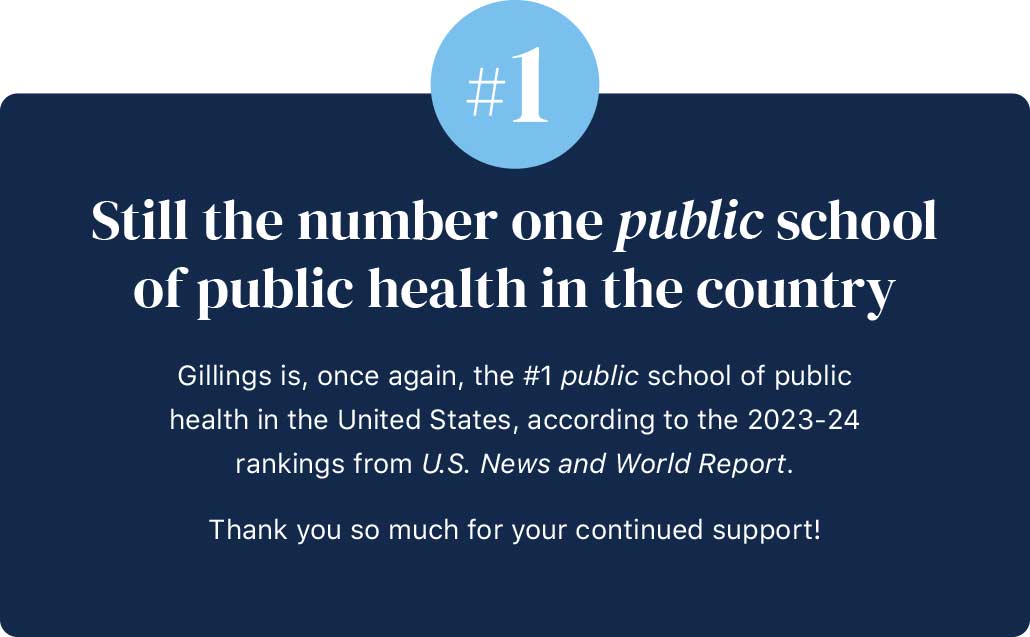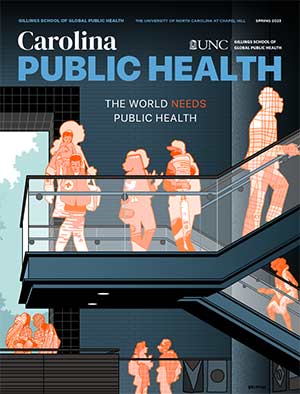The world needs public health because our foundation is rooted in the values necessary to design evidence-based solutions, adapt to adversity and collaborate for the common good.
Three years ago, public health rose to a challenge that shook the world.
Under the pressure of time, uncertainty and withering scrutiny, public health efforts confronted an unprecedented viral threat, aided the rapid development of revolutionary therapeutics and vaccine technology, and helped us understand our role in caring for one another. As the United States confronted the impacts of structural racism, public health played a necessary part in finding new solutions to improve health inequities.
Though we are called public health, we have endured on the periphery of public awareness — working to prevent illnesses, deaths and disasters that are difficult to measure when they do not occur. When COVID-19 brought our school into the spotlight, the world saw the strength of our values: cooperation, inclusion, equity, empathy and perseverance.
But this experience has not been without challenges. Preventable illness and death have caused suffering for millions. The number of people whose lives have been altered by long COVID increases every day. Our health care systems are strained, and lack of public health funding and organization have prevented proactive responses. We are still chipping away at the structural barriers to health care access, systemic equity, climate change, clean water and many other factors that impact our well-being.
Furthermore, a crisis of trust has polarized the public. Experiences of racism, discrimination and economic hardship have led to medical mistrust. Disinformation and lack of public health communication have led to confusion about what is fact. Distrust in the institutions once thought unassailable — the schools, doctors, media and governments that are so important to a healthy society — have left many feeling fractured and disheartened.
As this issue of Carolina Public Health will demonstrate, public health is no stranger to these challenges. Indeed, it is the institution with the knowledge, resources and practices best suited to tackle them. The world needs public health because our foundation is rooted in the very values necessary to design evidence-based solutions, adapt to adversity and collaborate for the common good.
The world needs public health, because we are the future-minded researchers who work behind the scenes to prevent disease, prepare for disasters, promote health and prolong life.
The world needs public health, because we are the advocates for policies that are informed by evidence and rooted in equity and inclusion.
The world needs public health, because we are the partners who elevate community voices and approach health solutions from new perspectives.
The world needs public health, because we are the practitioners who work locally and globally, with an understanding that our impact must support human rights and reduce harm.
And the world needs public health, because we are the communicators who strive to educate with empathy, trust and accuracy.
At the Gillings School, we aim to instill public health leaders with knowledge and skills that reflect these institutional values. And we strive to live these values as we press forward in the journey toward lasting change.
But our work does not end if we stumble on the road to that change.
On the contrary, that is when
our work begins anew.





